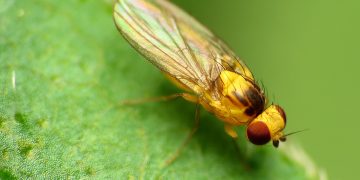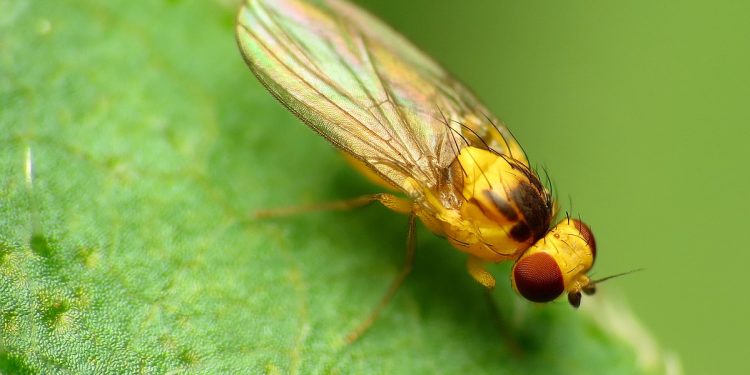Liriomyza trifolii, commonly known as the vegetable leafminer, is a notorious pest that attacks crops such as tomatoes, peppers, and beans, causing significant economic losses for farmers. In this article, we will discuss the biology, behavior, and management strategies of Liriomyza trifolii.
Liriomyza trifolii is a small fly that lays its eggs inside the leaves of host plants. The larvae feed on the plant tissue, creating characteristic tunnels or mines, which can cause extensive damage. According to research by the University of California Agriculture and Natural Resources, Liriomyza trifolii infestations can reduce crop yields by up to 50%.
To manage Liriomyza trifolii infestations, farmers and agronomists can take several steps. These include crop rotation, sanitation practices, and the use of biological control agents such as parasitoids and predators. Chemical control using insecticides is also an option, but it is essential to use the correct product and apply it correctly to avoid the development of resistance.
It is crucial to monitor crops regularly for signs of Liriomyza trifolii infestation, as early detection can help prevent severe damage. The use of yellow sticky traps and visual inspection of plants can be effective monitoring methods.
In conclusion, Liriomyza trifolii infestations can have devastating effects on crops and lead to significant financial losses for farmers. By implementing proper management strategies and monitoring techniques, farmers and agronomists can effectively control Liriomyza trifolii populations and minimize their impact.
Tags: #Liriomyzatrifolii #leafminer #cropmanagement #pestcontrol #agriculture #farming #agronomy































